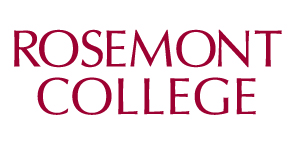Bachelor of Arts in New Media Communication

At the heart of every news article, viral video, and podcast episode is a story.
Transforming your ideas into a clear, compelling narrative requires a wide range of skills in communication, creativity, and technology. Rosemont’s Bachelor of Arts in New Media Communication will provide you with the practical and theoretical knowledge you need to be an effective storyteller in journalism, social media, video production, film, public relations, publishing, and other media-focused fields.
To be successful in media, you must also know how to brand your most important asset—yourself! By the time you graduate from our program, you’ll have your own website and portfolio of work, as well as proficiency in social media platforms, WordPress, Adobe Creative Suite, YouTube, Canva, Storify, Blogger, programming language Scratch, Audacity, and the latest apps and software. And since the media landscape constantly evolves, you’ll learn how to quickly adapt to new technology and best practices.
Choose Your Path to Success
While all New Media Communication majors take foundational courses in mass media in the digital age, new media writing, and research methods, you’ll develop a specialized skill set through a concentration in digital media, journalism, or public relations.
Digital Media Track: There is a growing demand for digital content—and people who know how to utilize it—in nearly every field. Students prepare to meet that need by mastering various areas within digital media, including multimedia content creation, social media, video streaming, interactive web design, and data analytics. Students also learn strategies to effectively produce and disseminate information online.
Journalism Track: Maybe you love to write. Or you’re fascinated by simply talking to people to see what you can learn from them. Or perhaps you’re passionate about informing and educating the public. If any of these ring true, then journalism can be a rewarding career. Coursework focuses on developing strong reporting, news writing, and interview skills, as well as best practices for finding and using sources. Students also explore how to create content for new, niche areas of the field, including business journalism, data journalism, digital journalism, and others.
Public Relations Track: Now more than ever, corporations, nonprofits, celebrities, and even government agencies have their own brand, or “voice.” In turn, the need for strategic PR professionals who can create, maintain, and protect that brand continues to grow. Classes in this track are multimedia-focused, covering practical skills (crafting press releases, interacting with the media, public speaking) and the ways in which websites, social media, podcasts, and viral marketing affect how we engage with one another and the information we consume.
Why Study New Media Communication at Rosemont?
Rosemont’s intentionally small class size allows our students to make deep connections to their peers and professors, helping you find your unique voice and expanding your professional opportunities. Our intimate academic environment means that you’ll be an active participant in your learning: contributing to discussions, engaging with different viewpoints, and thinking critically about your own.
We realize that figuring out your calling is a process, so New Media Communication faculty serve as mentors, truly getting to know each student’s talents and ambitions. From discussing the best classes for your goals to introducing you to career paths you may not have known existed, professors and advisors support you through every step of your academic journey.
Outside the classroom, Rosemont’s location in suburban Philadelphia is a fantastic resource for hands-on learning and professional development. With easy access to TV stations, video production companies, magazines, newspapers, marketing and PR agencies, nonprofits, and government offices, opportunities for jobs and internships abound.
Coursework Examples
- COM 0125: Intercultural Communication
- COM 0287: Digital Media Analytics
- COM 0286: Digital Storytelling
- COM 0310: New Media as a Tool for Social and Political Change
- COM 0325: Sports Journalism
Look Forward to a Successful Future
The success of virtually any company depends, in part, on its communications strategy. That’s why jobs in media and communication are expected to increase 14% by 2030—faster than average for all occupations. The exciting part? This rapid growth, paired with the field’s fast-changing nature, means that there are countless paths to achieve your career goals.
Jobs for graduates with a BA in New Media Communication include:
- Social media director
- Web producer
- Digital strategist
- Marketing director
- Journalist
- Video editor
- Public relations director
- News anchor
- Press secretary
- Content writer
From Our Alumni
"The variety of classes I completed in the New Media Communication department showed me the many avenues of media that I could pursue. It helped me discover and define my current role as a digital manager at a high school.” - Matt Bempah
 “Rosemont's New Media Communication program has prepared me for the multiple achievements
I’ve already experienced in my career. I developed journalism skills that allowed
me to be innovative in the news environment, which helped me land my current position
as an assistant producer at KYW News Radio.” - Talaya Martin-Green
“Rosemont's New Media Communication program has prepared me for the multiple achievements
I’ve already experienced in my career. I developed journalism skills that allowed
me to be innovative in the news environment, which helped me land my current position
as an assistant producer at KYW News Radio.” - Talaya Martin-Green
